
The past always returns, one way or the other. It haunts the present and prophesizes our uncertain futures. That's why History is a cycle of recurring nightmares and dreams, one overtaking the other in ruthless combat.
Anyway, we're here to talk about the Academy Awards. The ghosts of Oscars past always come to haunt the current races, helping shape narratives, setting records to be broken and announcing patterns of cyclical discontent. Regarding the Best Picture nominees of 2019, here are some of the Oscar champions of the past that haunt them…
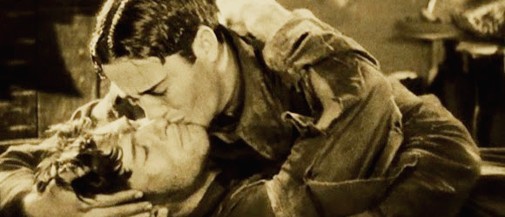
WINGS (1927)
1917 is far from being the first World War I movie to contend for Oscar gold. The very first Best Picture winner shared this theme. Though, unlike Sam Mendes' pristine drama, William A. Wellman's Wings explores war through the lenses of romantic melodrama and brotherly love. There's still a lot of technical wizardry, be it in mind-boggling camera movements or intense dogfights in the air, but its emotional storm always comes before the spectacle of craft.

LITTLE WOMEN (1933)
Greta Gerwig's Little Women is a radical reinterpretation of both Louisa May Alcott's literary classic as well as its previous big-screen adaptations. To revisit George Cukor's Little Women in the advent of such a thrilling remake is quite the revelatory experience. This Little Women for the Great Depression posits itself as Jo's story more than the collective odyssey of four sisters. Part of that is the impact of Katharine Hepburn's star persona, so magnetic and electrifying it reshapes the movie around her. It's thanks to her that this interpretation is the queerest of them all despite its age.
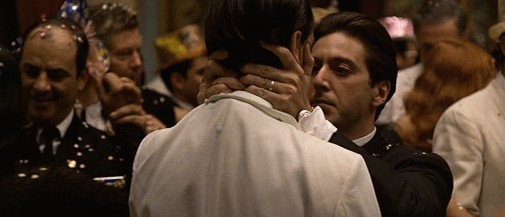
THE GODFATHER: PART II (1974)
The first time Al Pacino and Robert De Niro starred in the same picture, it was in the context of a grand mob epic suffused with bloody violence, brotherly betrayal, and meditations upon the unrelenting passage of time. History repeats itself in Scorsese's The Irishman. However, it's unlikely this digitally smoothed requiem for the wise guy will be as lucky as Francis Ford Coppola's Oscar-winning opus.
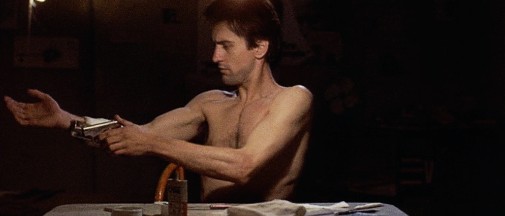
TAXI DRIVER (1976)
Comparing Todd Phillips' Joker to Martin Scorsese's Taxi Driver is so obvious it's starting to become annoying. Still, the connective tissue between the two portraits of maddening masculinity in lonely New York is so robust it's impossible to sever. One thing's for sure, the DC Comic movie is bound to be more successful than Marty's classic among the Academy. Despite its nomination for Best Picture, Taxi Driver won nothing while Joker seems to be locked for, at least, the Best Actor statuette.
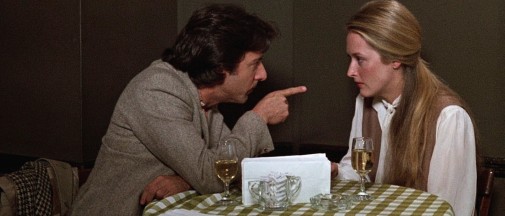
KRAMER VS KRAMER (1979)
Many have compared Noah Baumbach's Marriage Story to this 70s classic and controversial Best Picture winner. Both are stories of divorce, though Kramer vs Kramer is more interested in exploring the changing gender dynamics of its era. It also puts the question of parenthood in the center of its narrative instead of jettisoning its kid character to the sidelines. Compared to it, Marriage Story has a more limited scope, simultaneously more myopic and personal, more painful and simpler than Robert Benton's Oscar champion.

LIFE IS BEAUTIFUL (1998)
Prestigious weepy comedies about the Holocaust are a bizarre subgenre all to themselves. Add in the spotlight of Oscar glory and we have two curiously similar cases in Roberto Benigni's Life is Beautiful and Taika Waititi's Jojo Rabbit. Both are works of apparent provocation that contend with wild tonal shifts, saccharine intentions, and toothless humor. The 2019 picture is still more tolerable than its Italian predecessor, whose maudlin excesses and three Oscar wins make it a shameful stain in the Academy's history.
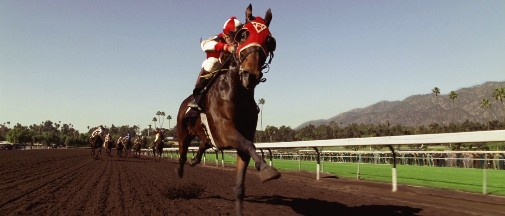
SEABISCUIT (2003)
What's it about racing-themed Dad movies and the Academy? Like Seabiscuit before it, James Mangold's Ford v Ferrari seems destined to be forgotten as soon as this awards season is over, making its Best Picture nomination a bit of trivia bound to trick people in future Oscar quizzes. Both productions are competent bits of conventional Hollywood filmmaking, solid but in no way Oscar-worthy.
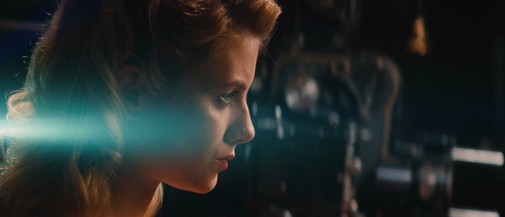
INGLOURIOUS BASTERDS (2009)
Rewritten history as bloody catharsis has become Tarantino's modus operandi since he imagined a different end for World War II in Inglourious Basterds. Like that 2009 flick, Once Upon a Time… in Hollywood seems like a frontrunner in the Best Supporting Actor and Original Screenplay races. Unlike Basterds however, Hollywood scored a slew of nominations in the design categories, a first in Tarantino's filmography.
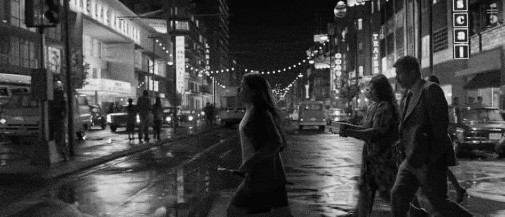
ROMA (2018)
Bong Joon-ho's Parasite is a masterpiece that deals in themes of class by focusing on the dynamic between a wealthy family and their staff. It's a formally rigorous work by a respected auteur and it won the top prize at one of Europe's more important festivals. Among its many awe-inspiring elements is an immersive scenography which involved the construction of an entire neighborhood. Because of all this, many think it will become the first "foreign language" film to win the Best Picture Oscar. Where have we seen this before?